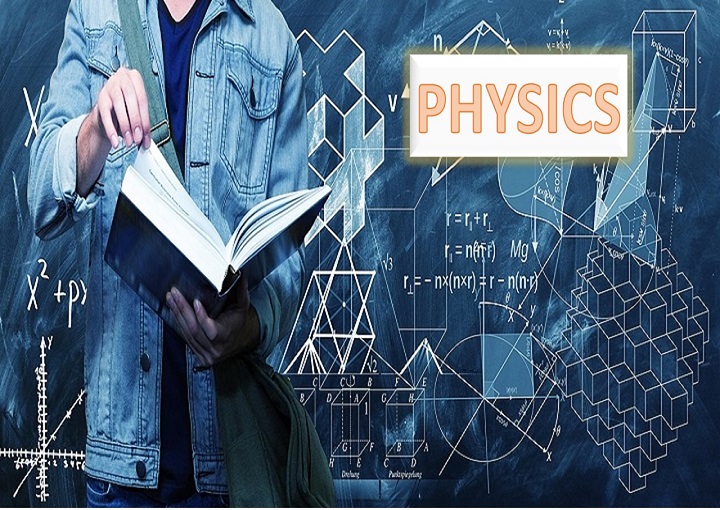Physics is a fundamental branch of science that deals with the study of matter and energy, their interactions, and the physical laws governing them. It encompasses everything from the tiny particles that make up matter to the vast expanse of the universe. In this article, we will take a closer look at the intriguing world of physics, exploring its history, major concepts, and applications.
1. What is Physics?
Physics is the study of matter, energy, and their interactions. It aims to understand how the universe works, from the smallest subatomic particles to the largest structures in the cosmos. Physicists use mathematical models, experiments, and observations to uncover the fundamental laws of nature.
2. Brief History of Physics
Physics has a rich history that spans over thousands of years. The ancient Greeks were among the first to study the natural world, and their philosophers made significant contributions to the field. The likes of Aristotle, Plato, and Archimedes paved the way for modern physics.
In the seventeenth century, Isaac Newton laid the foundation for classical physics with his laws of motion and gravitation. This period also saw the development of optics and the study of thermodynamics.
The twentieth century witnessed a revolution in physics, with the discovery of quantum mechanics and the theory of relativity. The likes of Albert Einstein, Niels Bohr, and Werner Heisenberg made groundbreaking discoveries that fundamentally changed our understanding of the universe.
3. Major Concepts in Physics
i. Mechanics
Mechanics is the branch of physics that deals with the motion of objects and the forces that cause that motion. It encompasses everything from the motion of planets to the behavior of subatomic particles.
ii. Thermodynamics
Thermodynamics is the study of the relationship between heat, energy, and work. It is concerned with how energy is transformed from one form to another and the efficiency of these transformations.
iii. Electromagnetism
Electromagnetism is the branch of physics that deals with the interactions between electrically charged particles. It encompasses everything from the behavior of atoms to the generation of electromagnetic waves.
iv. Optics
Optics is the study of the behavior and properties of light. It is concerned with how light interacts with matter and how it is generated and detected.
v. Quantum Mechanics
Quantum mechanics is the branch of physics that deals with the behavior of matter and energy on the atomic and subatomic scale. It is concerned with phenomena such as wave-particle duality and quantum entanglement.
4. Applications of Physics
Physics has numerous applications across a wide range of fields. Some of the most notable applications include:
i. Engineering
Physics is essential for the development of new technologies and the optimization of existing ones. Engineers use physics to design and build everything from bridges and buildings to electronics and spacecraft.
ii. Medicine
Physics plays a crucial role in medicine, from the development of diagnostic tools to the design of medical equipment. Techniques such as X-rays, MRI, and CT scans all rely on principles of physics.
iii. Energy
Physics is fundamental to our understanding of energy and its transformation. It has applications in renewable energy technologies, such as solar cells and wind turbines, as well as in nuclear power and energy storage.
iv. Astronomy
Astronomy relies heavily on physics to understand the behavior of celestial bodies and the universe as a whole. Physicists use telescopes and other instruments to study everything from the motion of planets to the nature of dark matter.
v. Electronics
Physics is essential for the design and development of electronic devices, such as computers, smartphones, and televisions. From the behavior of electrons in semiconductors to the generation and detection of electromagnetic waves, physics underpins many aspects of modern electronics.
5. Future of Physics
The future of physics is exciting and promising, with many unanswered questions and challenges yet to be tackled. Some of the current research areas in physics include dark matter, quantum computing, and fusion energy.
6. Famous Physicists
Physics has been home to some of the most brilliant minds in history. Here are just a few of the most famous physicists:
-
- Albert Einstein
-
- Isaac Newton
-
- Niels Bohr
-
- Marie Curie
-
- Richard Feynman
-
- Stephen Hawking
7. Misconceptions about Physics
Physics can be a challenging subject, and many misconceptions exist about its nature and importance. Some of the most common misconceptions include:
-
- Physics is only for geniuses
-
- Physics is irrelevant to everyday life
-
- Physics is only about equations and formulas
-
- Physics is a dry and boring subject
In reality, physics is a fascinating and dynamic field with numerous real-world applications and a rich history of discoveries and breakthroughs.
8. Importance of Physics in Everyday Life
Although physics may not always be obvious, it plays a crucial role in many aspects of our daily lives. From the technology we use to the energy we consume, physics has applications across a wide range of fields.
9. Conclusion
Physics is a captivating field that seeks to unravel the mysteries of the universe. It has played a vital role in our understanding of the natural world, from the behavior of subatomic particles to the structure of the cosmos. As we continue to explore the frontiers of physics, we can expect to make many more fascinating discoveries and breakthroughs.
10. FAQs
1. What is the most fundamental concept in physics?
Ans. The most fundamental concept in physics is that of energy, which lies at the heart of all physical phenomena.
2. What is the difference between classical and quantum physics?
Ans. Classical physics deals with the behavior of matter and energy on a macroscopic scale, while quantum physics deals with the behavior of matter and energy on an atomic and subatomic scale.
3. Can physics help solve global challenges such as climate change?
Ans. Yes, physics plays a crucial role in understanding and addressing global challenges such as climate change. Technologies such as renewable energy, energy-efficient buildings, and sustainable transportation all rely on principles of physics.
4. Is it possible for a non-scientist to understand physics?
Ans. Yes, with the right approach and resources, anyone can gain a basic understanding of physics and its principles.
5. What is the importance of studying physics in school?
Ans. Studying physics in school can help develop critical thinking skills, enhance problem-solving abilities, and prepare students for careers in science, engineering, and other fields.

